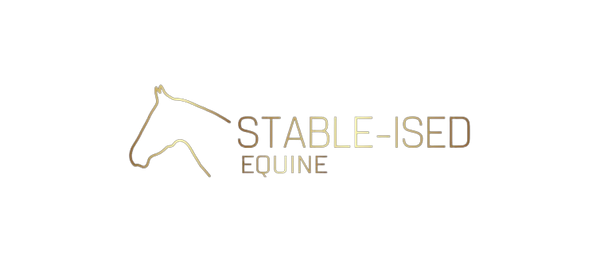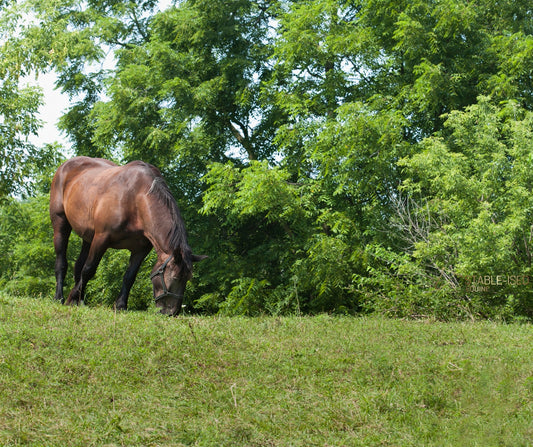Nutrient quantities and ratios tailored to the individual’s needs. There is no such thing as one diet/feed/supplement suits every horse. If someone is telling you this, they probably have a vested interest in said product or they haven’t studied enough about equine nutrition.
Species-appropriate is a term I throw around frequently but what does it mean? It means giving consideration to what best supports equine physiology. High fibre, good quality proteins, and non-structural carbohydrate totals that aren’t excessive relevant to the individual’s workload, metabolism, and health.
Simplified and streamlined dietary components. If your feeding regime resembles a shopping list, it’s probably not one I support. Over-complicating diets, feeding multiple sources of the same nutrient (vitamins, minerals), and the waste of so much time and money are common themes I see when assessing diets. The more your horse is expected to digest and utilise, the less capable they are going to be of achieving this.
What you feed is far more important than how much you feed. 2kg of one type of feed could provide less calories than 1kg of another type of feed. If meal proportions are exceeding the horse’s digestive capacity, they will not digest and utilise the nutrients you think you are feeding. More is not necessarily better, and meal proportions can be make or break when it comes to weight and muscle maintenance.
To wrap all of that up into one:
An Equine Nutrition Consultation allows a comprehensive evaluation of an individual horse’s nutrient requirements and takes the guesswork out of producing a species-appropriate and nutritious intake that supports their specific needs. In this day and age, there are hundreds, if not thousands of feeds and supplements on the market and I often see horse owners pouring money and time into over-complicated diets that don’t support equine digestive health or physiology. Marketing is my personal pet peeve as it is all too easy to use terms such as ulcer-friendly, laminitis-safe, cooling, calming, non-heating, balanced, low sugar, and low sugar to catch the attention of people who simply want to do better by their horses. Employing the services of an Equine Nutrition Consultant who is not affiliated with any feed or supplement companies means that you will receive unbiased and science-supported recommendations that do not have a hidden agenda. I understand that paying a fee for a professional service can be off-putting; however, many of my clients have been able to simplify their feeding regimes and reduce their expenses while improving their horse’s overall health, appearance, behaviour, and performance so the service often pays itself off quite quickly.




